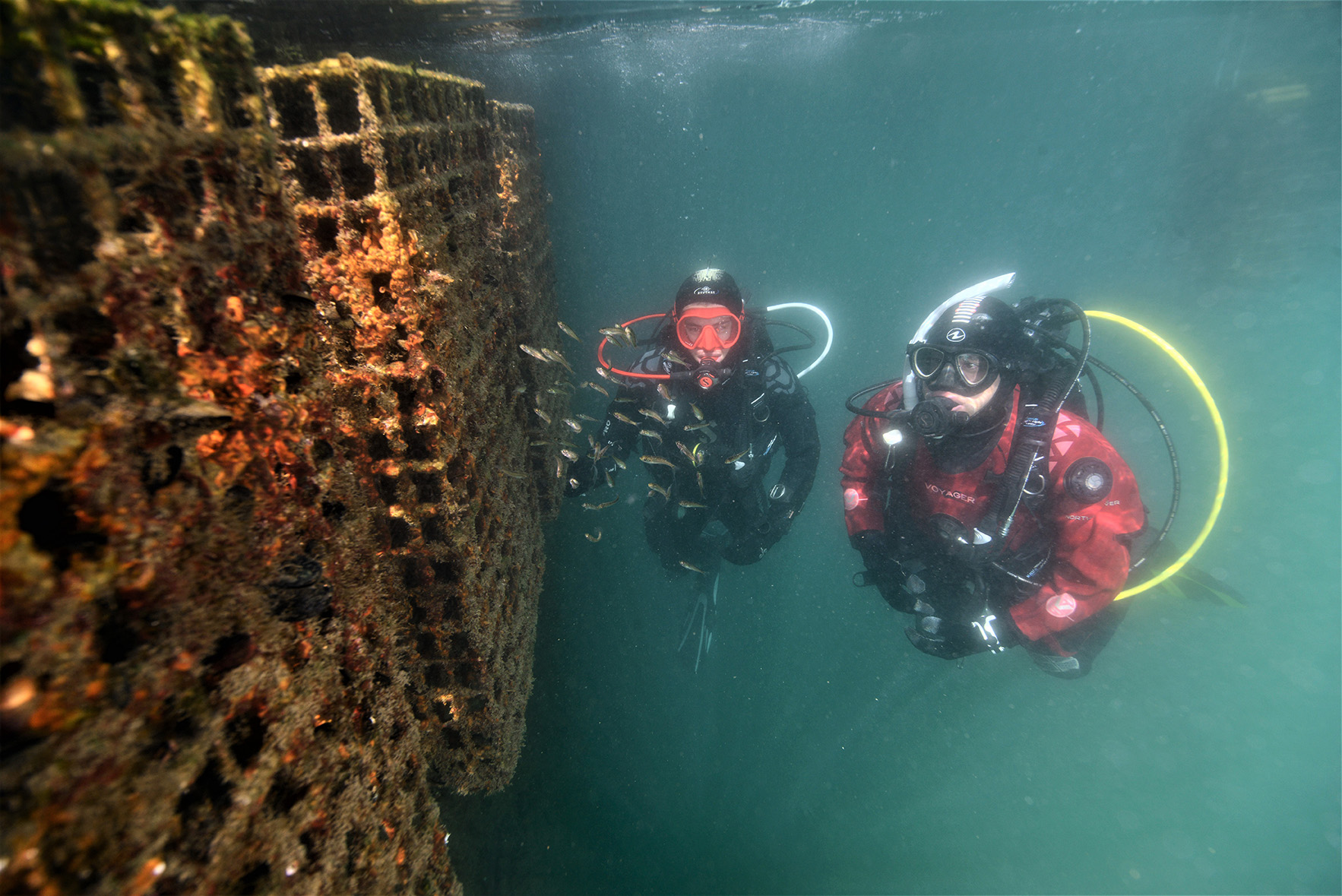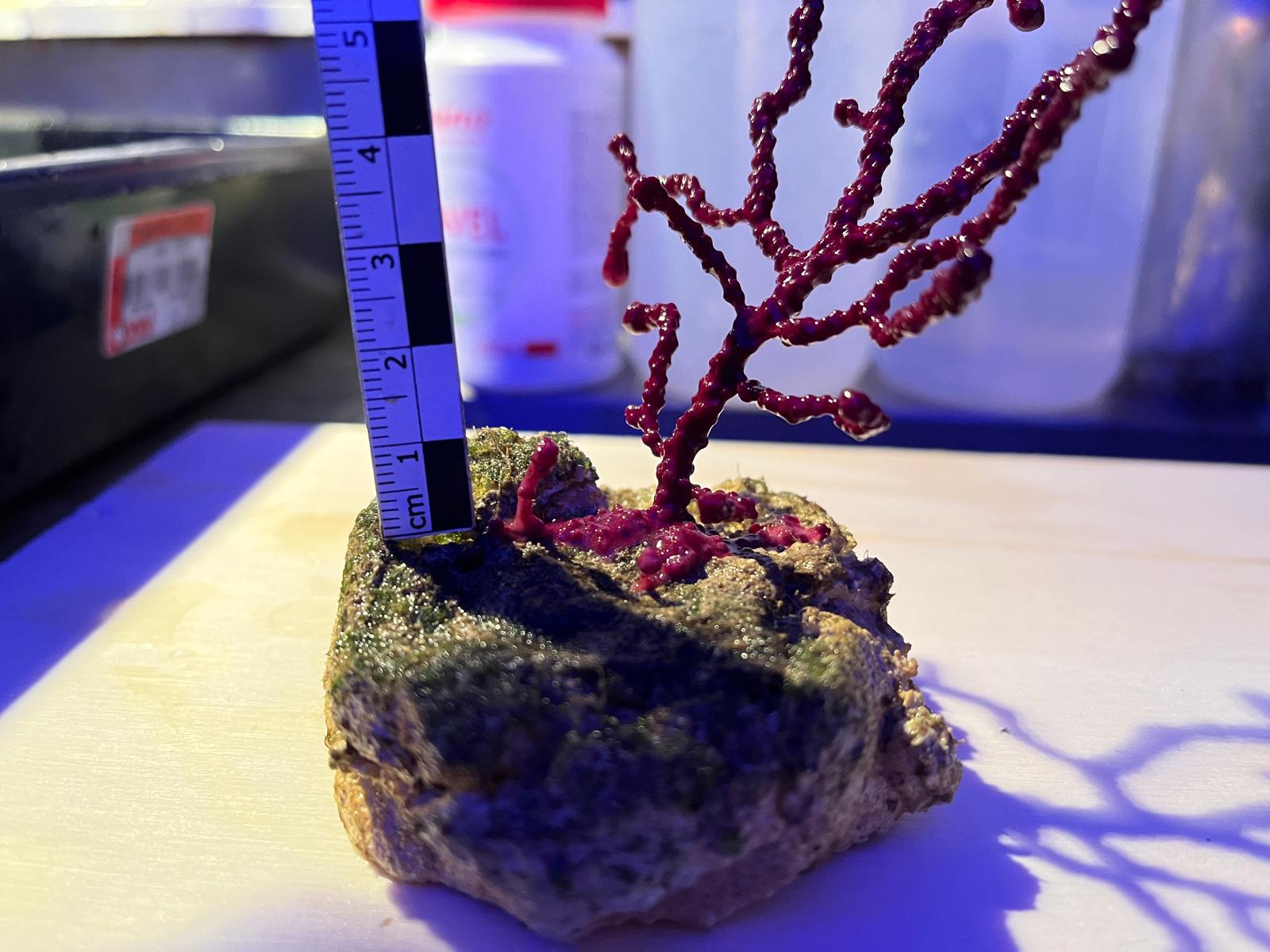Marine Innovation and Research (MIR) – Marseille, France
Fish being reintroduced in La Ciotat after having been reared for 3-6 months in the MIR Station laboratory in the port of Marseille.
Location
Bay of Marseille - southern France (including coastlines of Cassis, La Ciotat and Marseille)
Category
Site
Hub Name
Ecocean Northwest Coastal Mediterranean Hub - France and Spain
Ecosystems
Coastal ecosystems, rocky marine bottoms, shallow saltwater ecosystems
Land Tenure
Private and state ownership
Contact
Gilles Lecaillon
Telephone: +33 617985878
Websites
www.ecocean.fr/1216-poissons-relaches-dans-leur-milieu-naturel/
www.ecocean.fr/documents-a-telecharger/
Area of the site
Impact area 150 km² (Cassis, La Ciotat and Marseille coastlines and Port of Marseille)
Date of initiation
2016
Institutional collaborators
Port of Marseille, French Water Agency (Agence de l’eau, AERMC), local fishermen, local schools
Ecological importance of the site
- Nursery habitat for fish, crustaceans, mollusks, and other invertebrates
- Shallow water rocky bottoms - natural nursery grounds
- Coralligenous ecosystems
Socio-economic importance
- Recreation and tourism
- Awareness raising and environmental education
- Commercial port
- Artisanal fishery
Initial restoration actions
Since 2016, in the framework of the project CasCioMar coordinated by Ecocean, and funded conjointly by the French public water agency and private partners, operations of fish restocking with the BioRestore process have been conducted in the Port of Marseille and along the coastline linking Marseille, Cassis, and La Ciotat.
The BioRestore process, designed to mitigate the severe lack of suitable habitat for juvenile fish resulting from high human population density in the area supporting fish populations, comprises local fishermen contracted by Ecocean to capture fish post-larvae with CARE light traps (larval trap designed by Ecocean) to harmlessly capture juvenile fish in the post larvae stage.
In the natural environment, fish larvae have a very high mortality rate, when they drift from open sea and metamorphose before settling in coastal nursery habitats. The capture of a small share of these post-larvae has only negligible impact on the stock, and once they are placed and reared, for 3-6 months, in the MIR farm laboratory in the port of Marseille, the fish are released at a size and age where they suffer much lower mortality due to predation than they would have without ex-situ protection and nurturing. For more than 50 native fish species we have observed up to 90% survival following release. Additionally, this process allows Ecocean to involve fishermen in ecological restoration operations. They are contracted by Ecocean to catch the fish post-larvae, and to bring them alive to the farm where the fish are reared with non-domestication protocol and live food. Fishermen are paid to deploy the floating light traps at sea. For more information, see the articles downloadable at this site: https://www.ecocean.fr/documents-a-telecharger/
Nursery habitat rehabilitation in the port
In 2020, the CasCioMar farm and activities were relabeled the MIR (Marine Innovation and Research) station. In addition to the above-described operations of fish restocking that have been implemented since 2016 on the coastlines of Cassis, La Ciotat and Marseille, the pontoons of the MIR Station were equipped with Biohut© artificial fish habitat nurseries, as part of the NAPPEX network. This network, which coordinates and promotes installation and maintenance of artificial nurseries for more than 30 ports on the Mediterranean shoreline that commit to work together for the restoration of fish nursery functions in their waters. The Biohuts serve a crucial role by mimicking natural functions of nurseries, and providing food resources and shelter to juvenile fish, thereby helping them reach maturity. Concurrently, the farm laboratories on the port’s walkways and infrastructures contribute to the overall process.
In addition to taking part in the NAPPEX network, the MIR station in the port of Marseille serves as a lab to develop and test new types and designs of Biohut fish habitats, since monitoring is easy to implement in the area with Ecocean’s existing installations. Moreover, the high visibility of the modules of the MIR Station allows Ecocean to showcase the different types of modules that have been developed through time as well as the ecological functions they are rehabilitating.

Coralligenous ecosystem reimplantation
With experience in building small rearing farms for juvenile fish, and the knowledge and know-how of its staff, Ecocean started in 2021 the “OP Coral” project. The first phase of this project was to collect, down to 70 m depth, different organisms and species forming coralligenous reefs in the Northwest quadrant of the Mediterranean region. These reefs are made up of different species of calcareous algae, fixed cnidarians, gorgonians and other organisms, collectively building complex deep-water ecosystems that have become increasingly endangered throughout the Mediterranean Sea. After their collection, the organisms are reared and grown in near-natural conditions of temperature and light in the Station MIR farm. The farm is installed inside an insulated shipping container, so the conditions are stable, and the farm can be moved if needed. For two years, the species, among them the iconic red coral, Corallium rubrum, are propagated, and show very significant growth. The next step is the reimplantation of propagated individuals in their natural environment to validate the transplantation process and advance R & D for restoring coralligenous reefs.

A living laboratory for research and awareness raising
As noted above, with the different types of restoration and rehabilitation projects it brings together and develops, the Marseille MIR station is a unique lab to present the approaches that Ecocean is able to implement to support coastal marine ecosystems. It welcomes many people and different events where we can raise awareness about the urgent need for protecting marine ecosystems and their functions, and how we can act in a supportive way with innovative and scientifically validated processes.
With the permanent presence of qualified staff and the different infrastructure available, the MIR Station will continue to host different research and application projects for marine ecological restoration and rehabilitation, and to seek better understand and communicate possible consequences of degradation and restorative activities in Mediterranean coastal ecosystems.

